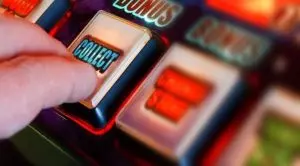 The recent crackdown imposed on the controversial fixed-odds betting terminals (FOBTs) has been backed by a Sunderland academic. As revealed by The Sunderland Echo, Dr. Helen Knight, a lecturer in psychology at the local university has welcomed the Government’s decision to reduce the maximum stake allowed at the machines in order to tackle gambling-related harm inflicted to customers.
The recent crackdown imposed on the controversial fixed-odds betting terminals (FOBTs) has been backed by a Sunderland academic. As revealed by The Sunderland Echo, Dr. Helen Knight, a lecturer in psychology at the local university has welcomed the Government’s decision to reduce the maximum stake allowed at the machines in order to tackle gambling-related harm inflicted to customers.
According to Dr. Knight, players felt a primal need to chase the loss, adding that such a behaviour has been one of the main reasons why North East gamblers lost millions of pounds on the FOBTs. As previously reported by Casino Guardian, the latter have been blamed for increased gambling participation rates and spreading gambling addiction among UK players.
Dr. Knight praised the UK Government for the measure which is set to help authorities tackle spreading problem gambling behaviour. She further noted that FOBTs were some of the main drivers of gambling revenue in the country, according to information published on the website of the UK Gambling Commission (UKGC). Dr. Knight said that the overall gross yield generated by the machines amounted to £2.7 billion, with the figure representing a 2.6% increase from the results posted a year earlier.
As far as the psychological aspect of gambling is concerned, the academic highlighted the fact that gambling companies often took advantage of many aspects of gamblers’ behaviour. In addition, the combination of bright lights, sounds and graphics used, made machines and rewards offered look more appealing to players so that they are encouraged to continue playing. What is more, Dr. Knight explained that gambling at FOBTs is often used by customers as a stress-relief approach.
Government’s Decision Aimed at Tackling Gambling-Related Harm
 The UK Government recently released the results of its gambling industry and FOBTs review, making a final decision to slash the maximum stake allowed at the machines to £2. For the time being, players are still given the chance to place a maximum bet amounting to £100 every 20 seconds – an opportunity which the Culture Secretary Matthew Hancock described as a serious problem for society.
The UK Government recently released the results of its gambling industry and FOBTs review, making a final decision to slash the maximum stake allowed at the machines to £2. For the time being, players are still given the chance to place a maximum bet amounting to £100 every 20 seconds – an opportunity which the Culture Secretary Matthew Hancock described as a serious problem for society.
The FOBTs are electronic gaming machines which offer customers the chance to play virtual casino games at a betting shop terminal. Two categories of games are available on the gambling machines allowed at betting outlets, with the B3 games featuring a maximum stake of £2, while the B2 games featuring a maximum stake of £100.
According to data revealed by some reports, players in the North East lost a total amount of approximately £43 million on the controversial machines back in 2016. Over the past ten years, the amount has been estimated at around £300 million.
As mentioned above, the gambling machines have faced nation-wide criticism due to their addictive nature. The terminals have been blamed for increasing gambling participation rates in regions where poorer people reside, with massive losses generated by players affected by gambling addictions. The Government’s decision is now aimed at minimising gambling-related harm among problem gamblers and raise people’s awareness of possible negative consequences related to gambling.
- Author


